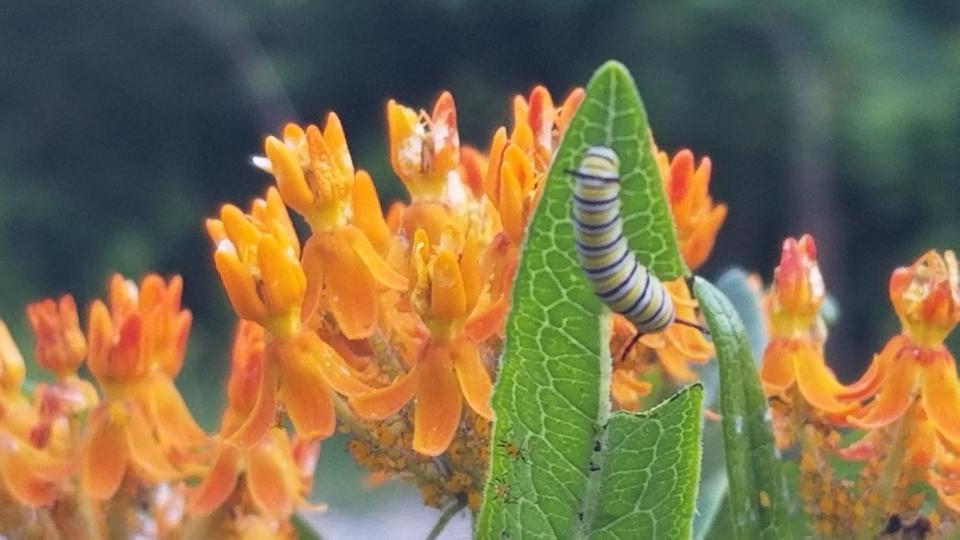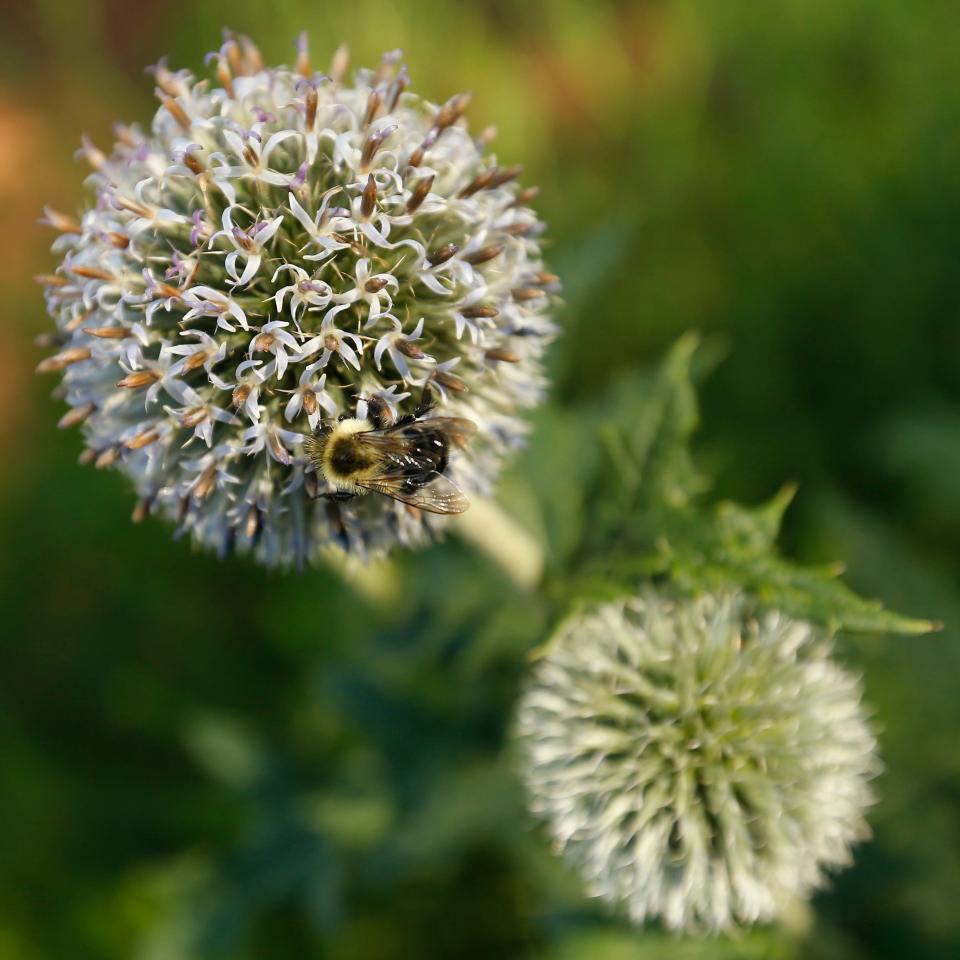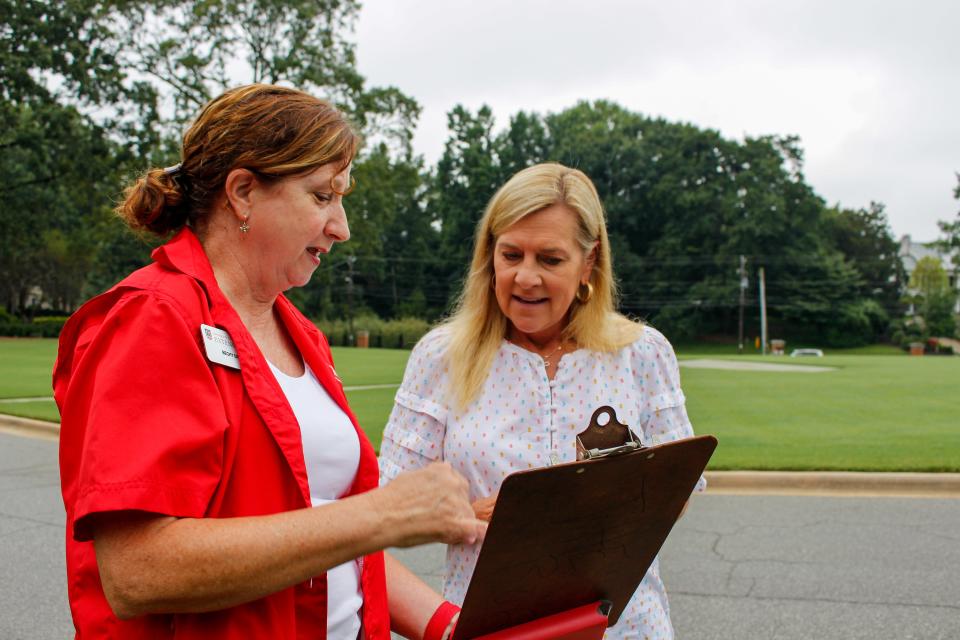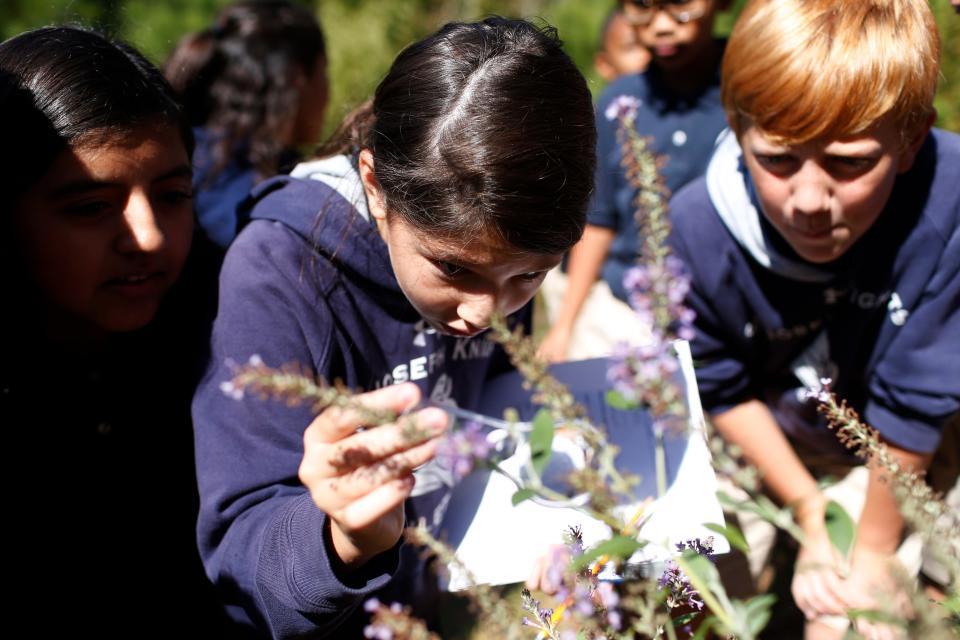Planting seeds for the future: Athens gardeners turn to native plants to support pollinators
When Sherrie Hines started researching native plants for her garden, the only people she interacted with about the subject were online. But when she called the Georgia Native Plant Society's headquarters in Atlanta, they told her it'd be easy to get a group together in Athens. There were already well more than 100 other gardeners just like her looking to support the environment from their own yards.
"I love gardening and was really involved in it, and didn't really have any perspective of why native plants are important ... or any concept of why native plants would be better or, quite frankly, essential to wildlife," Hines said. She's the founder of Athens' currently-forming local Georgia Native Plants Society chapter.

Links between plants, bugs and birds
But like many other gardeners, Hines got hooked on a book that has spread like wildfire through the gardening community nationwide: University of Delaware entomologist Doug Tallamy's book "Bringing Nature Home." She said reading about the connection between native plants and the "incredible, central link" among them, bugs and birds transformed how she thought about the ecosystem right in her front yard.
For example, Hines said, putting out bird seed is great to bring birds to her yard. But insects are even better for birds, and that she's read research about how chickadees need a large quantity of caterpillars every day just to raise a single clutch of a few eggs.
Native plants and insects and birds all co-evolved together, and by planting a bunch of nonnative plants Hines said landowners are unintentionally creating food deserts for wildlife.
Ditching the grass: Savannah gardener 're-wilds' yard with native plants
Preserving the ecosystem: Augusta growers learning to embrace native gardening

Everything in moderation
"We're not trying to say that you need to go to your house and rip up every non-native plant you have," Hines said. But everything in moderation.
Getting rid of invasive species that harm other plants is a must, but otherwise she has some non-native plants herself. This year, she said a plant she was excited for in her garden is the Golden Alexander Zizia, "a really neat little plant that is totally underappreciated" which blooms yellow early in the spring and is a host species for many native butterflies.
Each year she tries to turn a new section of her lawn into a native-space, working piecemeal. She said she doesn't miss the lawnmowing at all, and she doesn't have to water as much since the native plants are built for the local climate.

A scientific approach to gardening
Hines said she likes the native plant philosophy for her garden because it's a science-based approach, with research supporting the link between preserving and promoting native plants and its positive impacts on insects and the larger ecosphere.
Some of that research is happening right at home in Georgia.
Becky Griffin, University of Georgia Extension's community and school garden coordinator, is the coordinator of the Great Georgia Pollinator Census, a citizen-science research project helping inventory the pollinators living throughout the state.

Each August for two days, citizens spend 15 minutes in their yard counting insects that land on a favored pollinator plant – any plant in a garden that has a lot of insect activity.
The citizen counters put their counted bugs into categories: carpenter bee, bumblebee, honeybee, small bee (anything smaller than a honeybee), wasp, fly, butterfly or other, such as a beetle.
"Although we count for two days a year, it's a year-long initiative," Griffin said. The Great Georgia Pollinator Census, on its 363 off-days, does educational outreach about sustainable pollinator habitats: creating the best conditions to get good results on the two-day count.
"We have people that move in Georgia and they plant things that maybe are pretty and insects visit, but they succumb to our droughts. They have pest insect issues, they have disease issues," Griffin said. "Native plants, however, do not have a lot of those."
So far, in the four years they've been doing the project, Griffin said they've added more than 2,000 new sustainable habitats.
Griffin is also on the committee for the "pollinator plant of the year," a committee by the State Botanical Gardens of Georgia at the University of Georgia which nominates native plants which the horticulturalists can teach nurseries and greenhouses how to grow and sell. For example, the native milkweed — host plant for the infamous monarch butterfly — has seeds that must be cold stratified, in other words they need to be germinated cold and wet. When nurseries have this knowledge, they can better supply gardeners with native plants.
The pollinator census and its native plant education not only engage gardeners and bring awareness, but it helps research, too. Griffin said the census was built alongside statisticians to make sure the criteria were easy enough for the average citizen to learn and use, but useful enough for researchers to use the data.
One way the data is already in work is for agriculture, understanding where pollinators are throughout the state in relation to crops which need them, like watermelons.
Marisa Mecke is an environmental journalist. She can be reached at mmecke@gannett.com or by phone at (912) 328-4411.
This article originally appeared on Athens Banner-Herald: Athens gardeners revitalize pollinators with native plants

